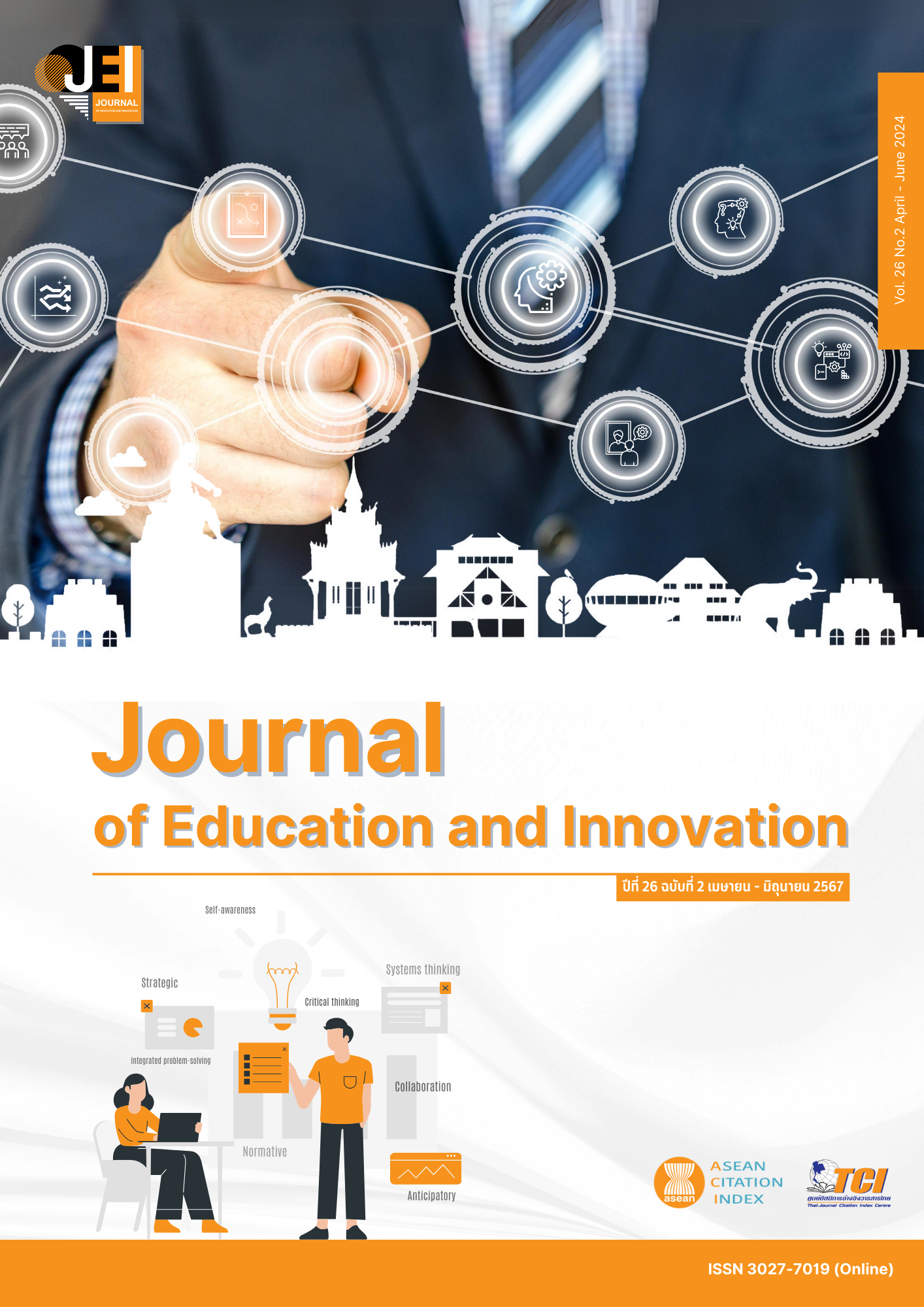DEVELOPING A COMPETENCY-BASED INTEGRATED LEARNING UNIT USING THE PROBLEM BASED LEARNING: PBL TO PROMOTE THE COMPETENCE OF LEATNERS OF SELF DEVELOPMENT SCHOOLS (TSQP) OF PHITSANULOK PROVINCE
Main Article Content
Abstract
This research on the development of an integrated learning unit using Problem Based Learning to enhance learners’ competencies in self-development schools (TSQP) of Phitsanulok Province had as objectives to: 1) study of Potentials readiness and needs of administrators and teachers in developing competency-based integrated learning units based on problem-based learning to enhance learners’ competencies, 2) develop personnel for the development of a competency based integrated learning unit using problem based-learning to enhance learners’ competencies, 3) implement the developed competency-based integrated learning unit, and 4) assess the result of the competency-based integrated learning unit. The research was conducted according to Research and Development steps. The sample consisted of school administrators and teachers in the Teacher School Quality Program (TSQP) from 6 schools. The research findings revealed that: 1) the study of Potentials readiness and needs of administrators and teachers in designing and developing the competency-based integrated learning units using Problem-based learning found that there was overall potential and readiness at a high level with a high level of demand. 2) After training, teachers could design and develop competency-based integrated learning plan using the Problem-based learning with online systems. 3) The implementation of the competency-based integrated learning unit using Problem-Based Learning by the teachers found that teachers managed learning through active learning process with authentic assessment and evaluation. Students’ competencies after the implementation of the learning units were enhanced in all aspects. 4) The results of using the competency-based integrated learning unit using the Problem-Based Learning found that learners had competency according to the stated criteria in all 6 areas. Teachers were very satisfied with learners’ outcome. Teachers could create competency-based learning units and would like to create and develop the learning units continually.
Article Details

This work is licensed under a Creative Commons Attribution-NonCommercial-NoDerivatives 4.0 International License.
The owner of the article does not copy or violate any of its copyright. If any copyright infringement occurs or prosecution, in any case, the Editorial Board is not involved in all the rights to the owner of the article to be performed.
References
Buason, R. (2022). Research and development of educational innovation. Bangkok: Chulalongkorn University Printing.
Guzdial, M., Hmelo-Silver, C. E., Hübscher, R., Nagel, K. S., Newstetter, W. C., Puntambekar, S., Shabo, A., Turns, J., & Kolodner, J. L. (1997). Integrating and guiding collaboration: lessons learned in computer-supported collaborative learning research at Georgia Tech. In Hall, R., Miyake, N., & Enyedy, N. (Eds.), CSCL '97: The Second International Conference on Computer Support for Collaborative Learning. Toronto, Ontario: International Society of the Learning Sciences.
Jabjone, S. (2010). Achievement and satisfaction in problem-based teaching and learning in system analysis and design courses. Nakhon Ratchasima: Nakhon Ratchasima Rajabhat University.
Klomim, K. (2017). How to learning problem-based learning: Coursed design and development coursed for student teachers. Journal of Graduate Studies Valaya Alongkron Rajabhat University, 11(2), 181-192.
Office of the Basic Education Commission. (2019). Ground supervision guidelines develop and promote active learning management in accordance with the policy to reduce class time. Bangkok: The Printing House of the Teachers' Council.
Office of the Basic Education Commission. (2021). Basic Education Curriculum Framework Buddhist Era. Bangkok: The Printing House of the Teachers' Council.
Office of the Council of Education. (2018). National Education Standards 2018. Bangkok: The Printing House of the Teachers' Council.
Onnang, K. (2018). The role of teachers in the 21st century with active learning teaching the 21th century teacher roles in active learning model. Retrieved August 30, 2022, from http://www.cmruir.cmru.ac.th/bitstream/
Panich, V. (2015). Learning for students in the 21st Century. Bangkok: Tatata Publishing.
Sergiovanni, T. (1998). Building community in schools. San Francisco, CA: Jossey Bass.
Swaddiboonya, N., Mathapatara, P., Stirayakorn, P., & Ruchusanti, S. (2011). Training model for the head of department to develop training programs on problem - based learning instruction. The Journal of KMUTNB., 21(2), 387-395.


